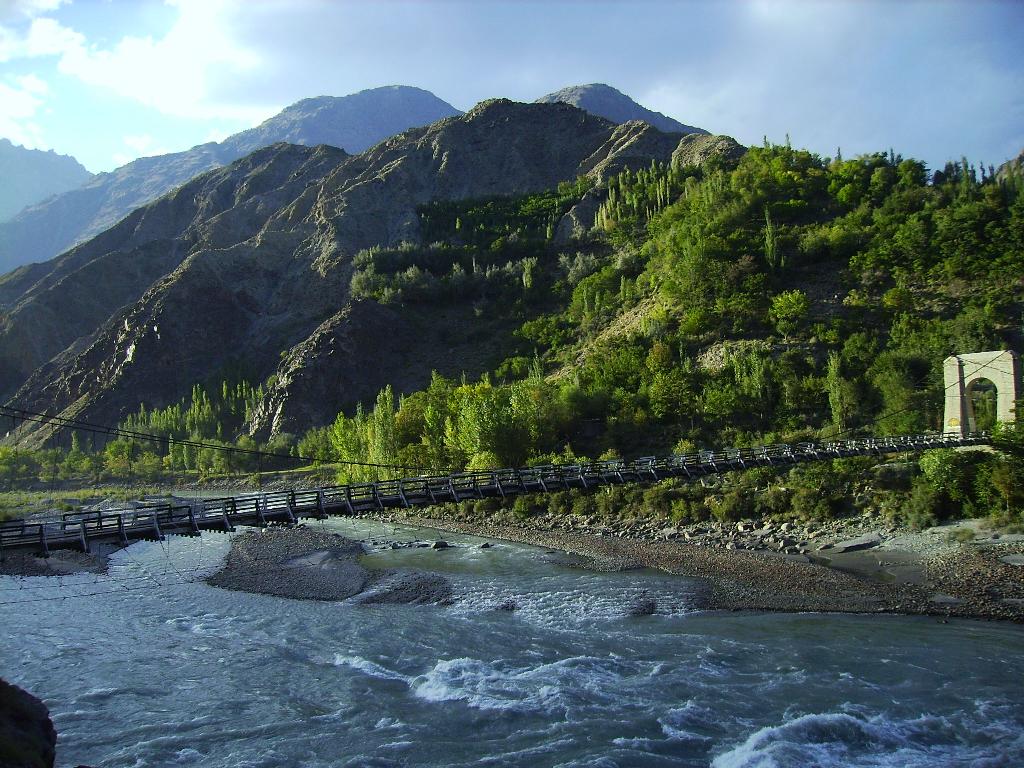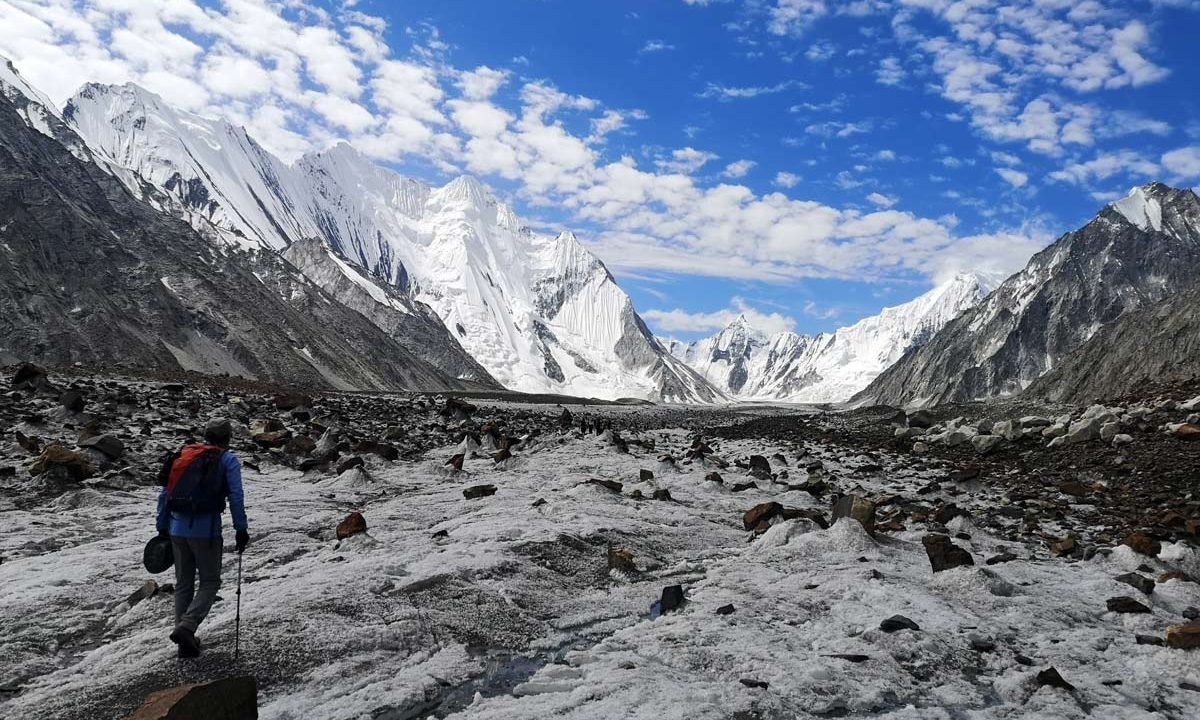Latok group of Peaks are Latok I is 7145m, Latok II is 7108m Its west face first ascent made by Toni Gutsch, Alex and Thomas Huber in 1997 (a recent Italian expedition surveyed the Latok peaks and measured Latok II higher than Latok I),Latok III 6940m, Latok IV 6456m, Latok IV SE Ca6450m. The other peaks close by are Choktoi 6166m, Baintha Brakk SE 6960m, 7285m middle, Orge Thumb / Lukphila Brakk 5500m, Spaldang 5590m, Biacherahi Towers 5900m. Big Wall is the nature phenomenon, a precipice which has a steep more than 70 degree and the length more than a kilometer. There are 20 Big Wall in the World and Latok is one among them. Latok peaks are mixture of ice and rock climbing. Not all of Latok Peaks faces are climb, there is plenty of opportunity for adventure lovers to come and make their first ascent. In 1999 the Huber brothers from Germany made the second ascent on Latok IV south 6450m in one day they also climb Latok II.
Baintha is the local name for Ogre, this is an easy day walking on the glacier. Hispar Pass can be viewed while walking. Enjoy spectacular views of Latok groups of Peaks including Latok 1 (7,145 m), Latok 2 (7,108 m) along the trek. The track follows the ablation valley past a small lake, then heads out across the lateral crevasses to the smooth white center of Biafo glacier Biantha campsite is grassy area with clear stream flowing through dense willow shrubs surrounded by Himalayan flowers. Sir Martin Conway one of early exploratory visitors camped here in 1892. Baintha camp is at 4000m above sea level. Approx. 4/6 hrs.



